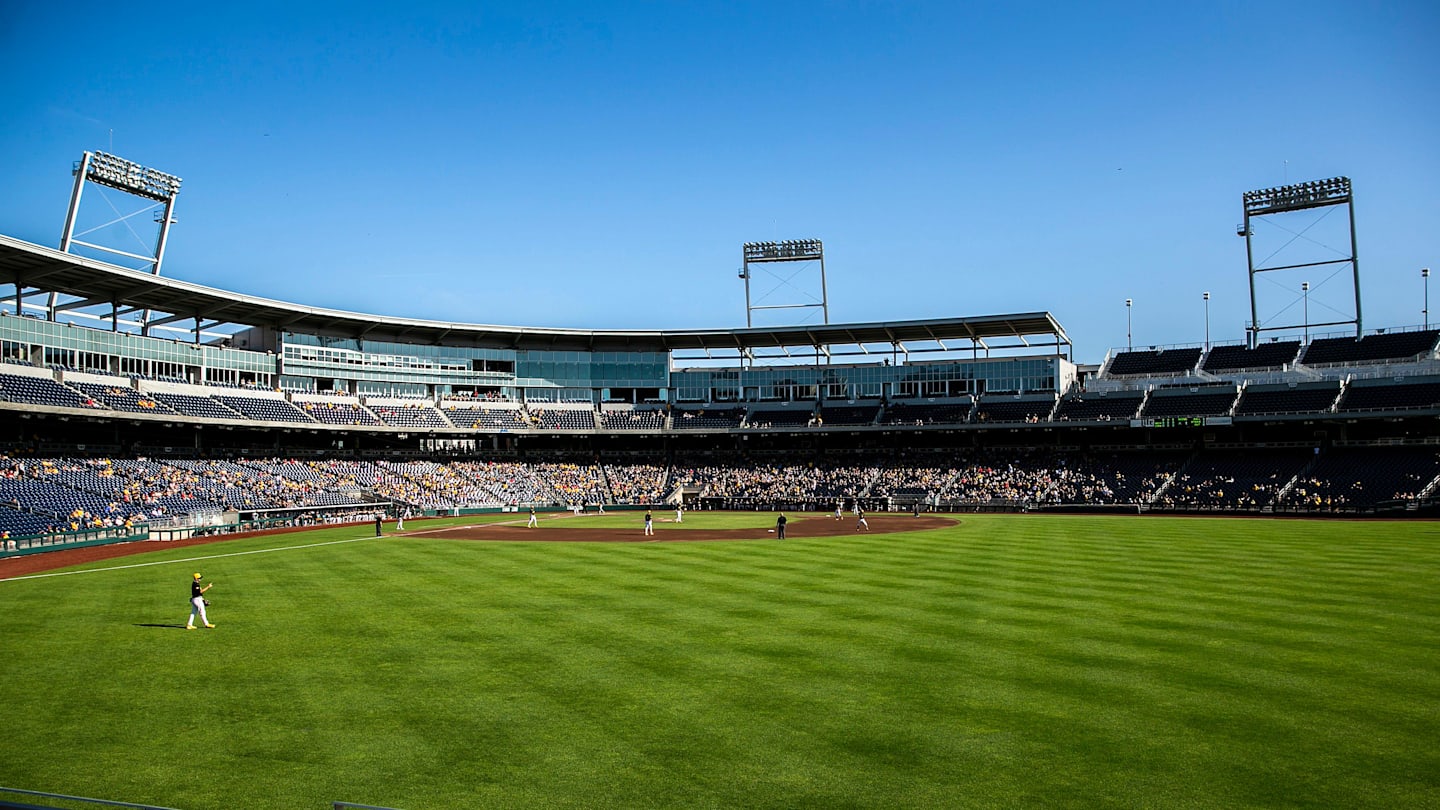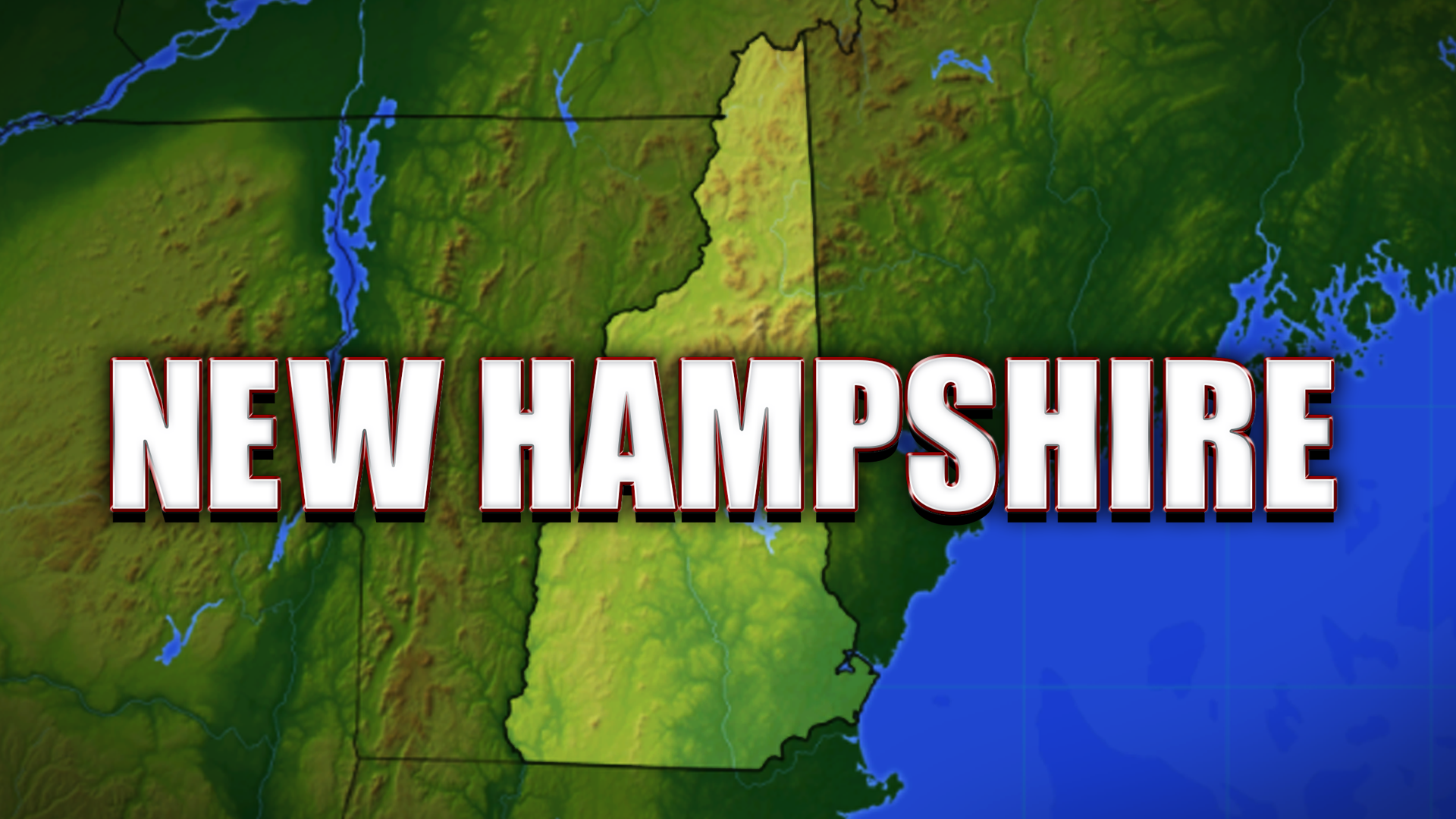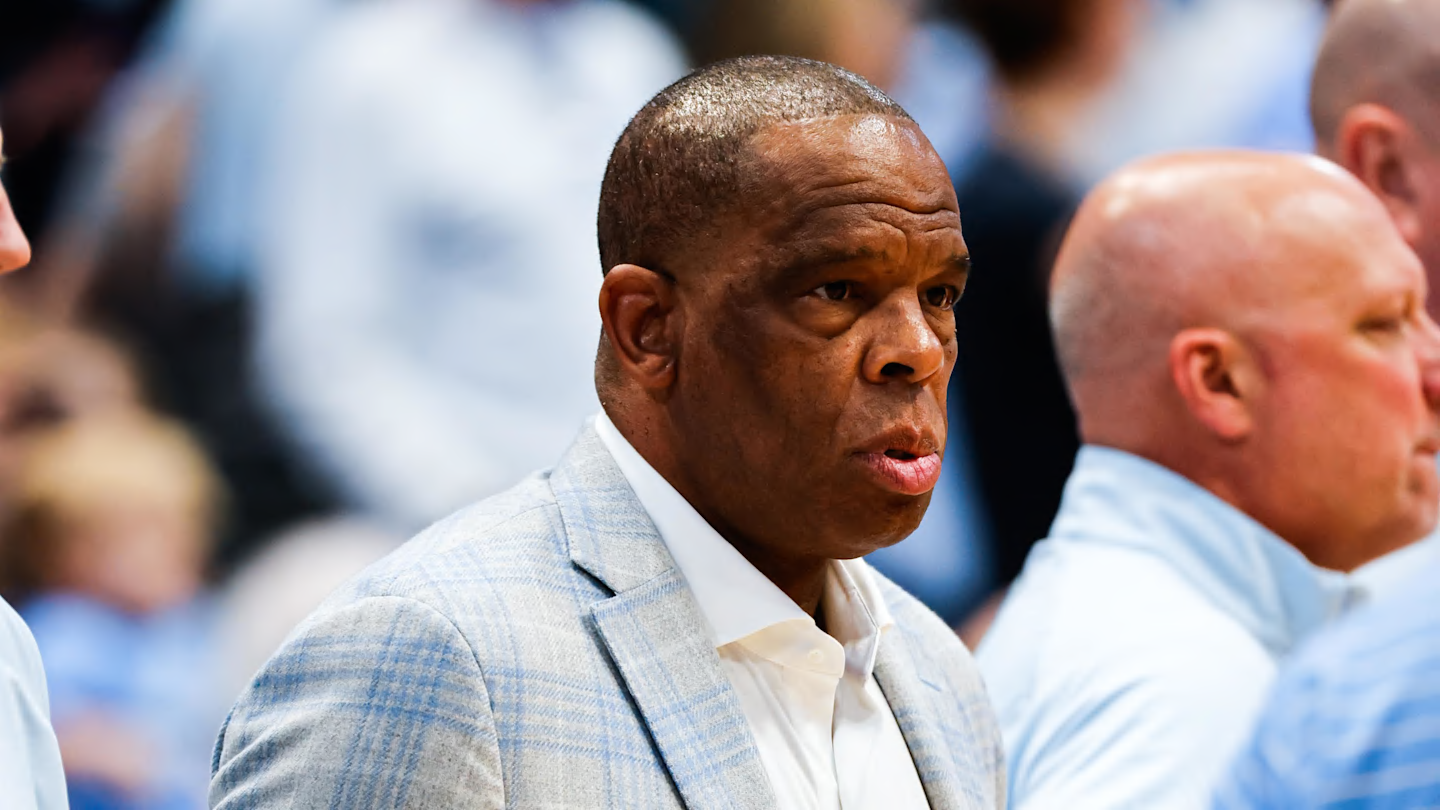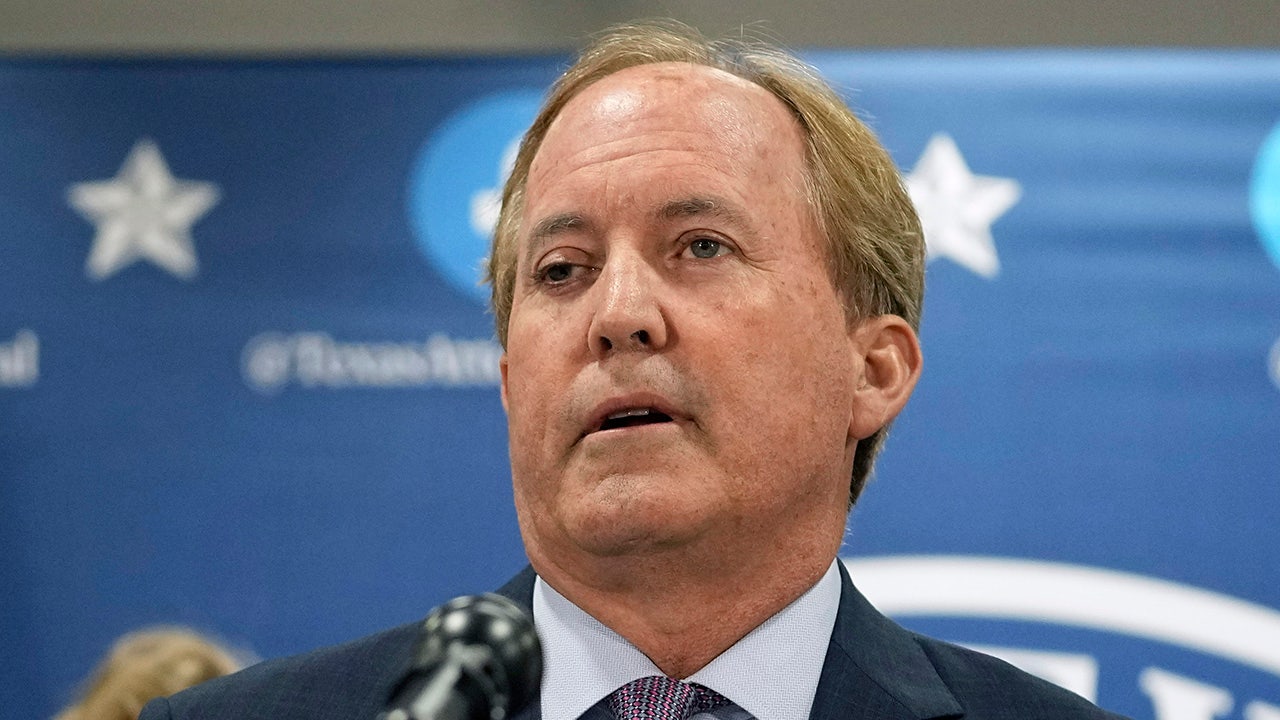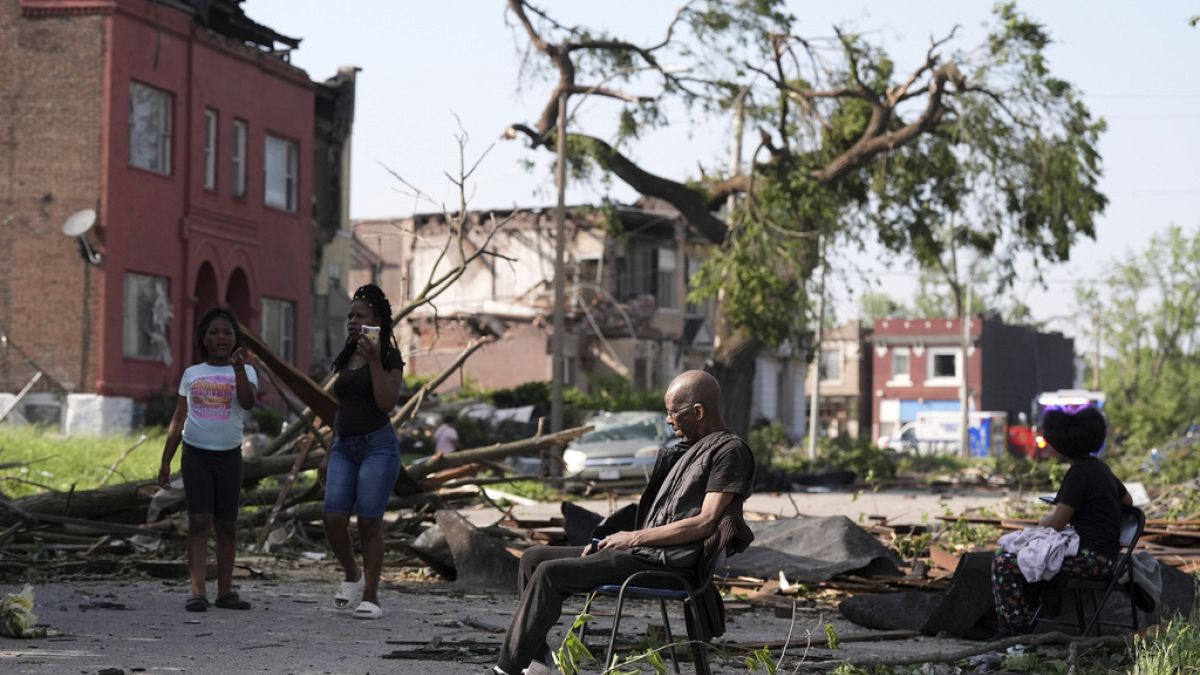Education
The Legacy Dilemma: What to Do About Privileges for the Privileged?

When Kathleen James-Chakraborty received her acceptance letter to Yale on April 17, 1978, there was little doubt in her mind that a crucial factor helped secure her spot: Her father and two great-grandfathers had all attended the school before her.
As a teenager, she was ambivalent. The legacy advantage in admissions gave her pause. But studying at Yale would offer a special connection to her father, who died of a heart attack days after learning Ms. James-Chakraborty had been accepted to his alma mater. It was a familiar place, with excellent opportunities. Ultimately, she enrolled.
Decades later, Ms. James-Chakraborty, now a professor of art history and an architectural historian at University College Dublin, is now firm that the same legacy admissions practice that boosted her application long ago should no longer exist. Her son chose not to apply to Yale.
“I definitely think it should go,” Ms. James-Chakraborty said in an interview, adding “there’s no one building or one professorship, or whatever the parents may be in a position to donate, that justifies that.”
Like Ms. James-Chakraborty, students and alumni of many colleges and universities — not just ultra-elite ones — are now wrestling with the practice of legacy admissions, a debate with far broader implications after the Supreme Court last month gutted race-based admissions programs and forced colleges to reconsider their criteria for accepting students.
It has sparked some bracing introspection and complicated feelings.
About the role familial connections played in the success of many alumni. About whether the practice of legacy admissions, which has long favored white families, should be eliminated just as a more diverse generation of graduates is getting ready to send its own children to college. About how to reconcile the belief that privileges for the privileged are wrong with the parental impulse to do whatever they can for their own children.
With the end of race-based affirmative action, the practice of giving admissions preference to relatives of alumni is particularly under fire at the most elite institutions, given the outsized presence of their alumni in the nation’s highest echelons of power. A new analysis of data from elite colleges published last week underscored how legacy admissions have effectively served as affirmative action for the privileged. Children of alumni, who are more likely to come from rich families, were nearly four times as likely to be admitted as other applicants with the same test scores.
President Biden last month instructed the Education Department to examine how to improve diversity in admissions, including “what practices hold that back, practices like legacy admissions and other systems that expand privilege instead of opportunity.” Harvard’s legacy admissions policy, which gives preference to the children of both alumni and donors, now faces a civil rights investigation after a complaint from liberal groups.
At least one college, Wesleyan University in Connecticut, decided to publicly end the practice this month, after the Supreme Court ruling against affirmative action. In an interview, Michael S. Roth, the school’s president, called it the removal of “a symbol of our old-fashioned exclusivity that is no longer appropriate.”
“Even though there are some more Black and Hispanic students who’d be eligible for it now because of the passage of time, it still predominantly favors white people and people of privilege,” he said.
Colleges have defended the practice — which began in the 1920s as a way for wealthy Protestants to protect collegiate spots from Catholic and Jewish applicants — as something that helps maintain financial support for their institutions and fosters community bonds.
Some alumni agree, arguing that family tradition has encouraged them to earn the qualifications for admission and that a new generation can do the same.
“In the real world, folks, this is how things go,” said Rob Longsworth, an investment manager who was the seventh in his family to attend Amherst College. “But this is ultimately not a zero sum game. If other people want these things, go get them. Do the work to establish such a tradition in your family, if that’s what they want to do.”
Amherst ended preferences for the children of alumni less than two years ago, saying it wanted to be a leader in supporting access and equity.
Opponents of legacy admissions are careful to draw a distinction between the practice at predominately white elite universities and historically Black ones, which rose out of racism and segregation to foster tradition and community for Black families. Legislation introduced on Capitol Hill this month aimed at outlawing legacy admissions — which currently lacks enough support to pass — would exclude those colleges from such a ban.
Some parents and academics who are Black and Hispanic argued that, since elite schools have only in recent decades begun to admit more students of color, it would be discriminatory to deprive their children of the advantage now that they can finally gain from it.
“It is pulling up the ladder behind them to not allow their kids to be legacy admits,” said Noliwe Rooks, a graduate of Spelman College, which is historically Black, and now a professor and chair of Africana Studies at Brown University. “It’s a few in number, but important symbolically.”
She added that it was important to “push back against the idea that the only Black people who should be on highly selective campuses are those who are first generation or poor.”
Others have more conflicted views of who should benefit. It is impossible to discuss legacy admissions without hearing alumni trying to sort their ideals from their self interest. Some wonder if a second-generation legacy candidate should be equivalent in the unearned-privilege column to someone who had an ancestor attend more than a century ago. Or whether nixing legacy admissions will really make a dent in an elite education system where bias toward the wealthy runs so deep.
Many colleges in recent years have worked to recruit students whose families have never had a college graduate — essentially the opposite of legacy admissions. Even among those first-generation students, there are a range of feelings about legacies.
Viet Nguyen, 28, who was the first in his family to attend college, recalls feeling his heart sink when he saw the question on his college applications, “Did either of your parents attend this university?’’
The founder of an organization devoted to ending legacy admissions, Mr. Nguyen graduated from Brown in 2017 and says he does not want any children he might have to receive legacy preference.
Questions like the one posed on his applications, said Mr. Nguyen, “makes a lot of first-generation students think they don’t have a chance.’”
Many alumni instinctively see the failings of legacy admissions elsewhere, but the good parts close to home.
Kially Ruiz graduated from Dartmouth in 1998 and was a first-generation college student from the Dominican Republic. He is now the president of the Dartmouth Latino Alumni Association.
Mr. Ruiz said that legacy admissions should not “devolve into a kind of nepotism, or some type of unfair advantage” against applicants who are not legacies.
Still, he said, it is important to consider what a “very strong alumni community” means to a smaller college like Dartmouth.
“There’s a place for legacy admissions, in the sense that if the candidate is qualified and has merit,” he said. “Having that strong connection to the college is important for us.”
Emily Van Dyke graduated from Harvard in 2003, later returned for a graduate degree and recently stepped down as president of the university’s Native American alumni group. She opposes legacy admissions, saying it “appears to create a class system within the admissions process.”
Many legacies she knew never lost the sense that they got in, at least in part, because of an unfair advantage.
“I thought that carried a weight for them,” she said. “It made Harvard a little tainted for them.”
Some alumni acknowledge that their parents’ desire for them to become a legacy may have overtaken their own passions and ambitions in choosing a school.
Carol Harrington’s father had always dreamed that his two children would follow him to Brown. Ms. Harrington dutifully did, but found it didn’t offer the kind of psychology programs that were available at other schools that had accepted her. “It wasn’t an awful experience — I was just not excited by what I was learning,” Ms. Harrington, now 81, said.
She added: “That’s what legacy does — it limits choices.”
In the current climate, with race-based affirmative action struck down by the Supreme Court, some current students and recent graduates are feeling the sting, too.
Powell Sheagren, 23, who graduated last year from Swarthmore College, reveled in walking the same halls as his mother and his grandmother and exchanging stories about what had changed.
When he became more aware of the debate surrounding legacy admissions, Mr. Sheagren said, he winced, feeling the need to explain that he was a third-generation Swarthmore student for sentimental reasons, and that he was not there because of donations. It was the fall of affirmative action, he said, that cemented his desire for “the legacy door to close behind me.”
“You can split that hair — I can still value what I gained from the institution my family’s been to, and be against the system that tends to support rich, white people,” he said. Without legacy admissions, he added, “I could share these stories without this looming specter of, ‘Well, you didn’t earn your place here.’”
Kitty Bennett contributed research.

Education
Video: Opinion | We Study Fascism, and We’re Leaving the U.S.

I’m a historian of totalitarianism. I look at fascist rhetoric. I’ve been thinking about the sources of the worst kinds of history for a quarter of a century. “Experts say the constitutional crisis is here now.” ”The Trump administration deporting hundreds of men without a trial.” “A massive purge at the F.B.I.” “To make people afraid of speaking out against him.” I’m leaving to the University of Toronto because I want to do my work without the fear that I will be punished for my words. The lesson of 1933 is you get out sooner rather than later. I’ve spent a lot of time in the last decade trying to prepare people if Trump were elected once, let alone twice. “Look what happened. Is this crazy?” [CHEERING] I did not flee Trump. But if people are going to leave the United States or leave American universities, there are reasons for that. One thing you can definitely learn from Russians — — is that it’s essential to set up centers of resistance in places of relative safety. We want to make sure that if there is a political crisis in the U.S., that Americans are organized. ”We’ve just gotten started. You haven’t even seen anything yet. It’s all just kicking in.” My colleagues and friends, they were walking around and saying, “We have checks and balances. So let’s inhale, checks and balances, exhale, checks and balances.” And I thought, my God, we’re like people on the Titanic saying our ship can’t sink. We’ve got the best ship. We’ve got the strongest ship. We’ve got the biggest ship. Our ship can’t sink. And what you know as a historian is that there is no such thing as a ship that can’t sink. “The golden age of America has only just begun.” America has long had an exceptionalist narrative — fascism can happen elsewhere, but not here. But talking about American exceptionalism is basically a way to get people to fall into line. If you think that there’s this thing out there called America and it’s exceptional, that means that you don’t have to do anything. Whatever is happening, it must be freedom. And so then what your definition of freedom is just gets narrowed and narrowed and narrowed and narrowed, and soon, you’re using the word freedom — what you’re talking about is authoritarianism. Toni Morrison warned us: “The descent into a final solution is not a jump. It’s one step. And then another. And then another.” We are seeing those steps accelerated right now. There are some words in Russian in particular that I feel help us to understand what’s happening in the United States because we now have those phenomena. “Proizvol”: It’s the idea that the powers that be can do anything they want to and you have no recourse. This not knowing who is next creates a state of paralysis in society. The Tufts student whose visa was removed because she co-authored an article in the Tufts student newspaper. [DESPERATE YELLING] I thought, what would I do if guys in masks tried to grab my student? Would I scream? Would I run away? Would I try to pull the mask off? Would I try to videotape the scene? Would I try to pull the guys off of her? Maybe I would get scared and run away. The truth is, I don’t know. Not knowing terrified me. It’s a deliberate act of terror. It’s not necessary. It’s just being done to create a spirit of us and them. “Prodazhnost”: It’s a word in Russian for corruption, but it’s larger than corruption. It refers to a kind of existential state in which not only everything but everyone can be bought or sold. “Critics are calling this a quid pro quo deal between Adams and President Trump.” “I’m committed to buying and owning Gaza.” “He made $2.5 billion today, and he made $900 million.” There’s an expression in Polish: “I found myself at the very bottom, and then I heard knocking from below.” In Russian, that gets abbreviated to “There is no bottom.” “We cannot allow a handful of communist radical left judges to obstruct the enforcement of our laws.” What starts to matter is not what is concealed but what has been normalized. There is no limit to the depravity — ”President Trump did not rule out the possibility of a third term.” — and the sadism — “The White House released this video titled ASMR Illegal Alien Deportation Flight.” — and the cruelty that we are watching now play out in real time. “This facility is one of the tools in our tool kit that we will use.” You have to continually ask yourself the question, “Is this OK? Is there a line I wouldn’t cross? Is there something I would not do?” People say, oh, the Democrats should be doing more. They should be fixing things. But if you want the Democrats to do things, you have to create the platform for them. You have to create the spectacle, the pageantry, the positive energy, the physical place where they can come to you. Poland recently went through a shift towards authoritarianism. Unlike in Russia, unlike in Hungary, the media remained a place, in Poland, where you could criticize the regime. And as a result, democracy returned. The moral of Poland is that our democratic institutions — the media, the university, and the courts — are essential. You know you’re living in a fascist society when you’re constantly going over in your head the reasons why you’re safe. What we want is a country where none of us have to feel that way.
Education
A $5 Billion Federal School Voucher Proposal Advances in Congress

Advocates for private-school choice celebrated this week as a federal schools voucher bill moved closer to becoming law, a major milestone that eluded their movement during President Trump’s first term.
The House Republican budget proposal that advanced on Monday would devote $5 billion to federal vouchers for private-school tuition, home-schooling materials and for-profit virtual learning.
The program in the budget bill could bring vouchers to all 50 states for the first time, including Democratic-leaning ones that have long rejected the idea.
Supporters hailed the proposal as “historic” and a “huge win,” but some cautioned that there was still much legislative haggling ahead.
“Ultimately, every child, especially from lower-income families, should have access to the school of their choice, and this legislation is the only way to make that happen,” said Tommy Schultz, chief executive of the American Federation for Children, a private-school choice advocacy group.
Opponents of the proposal were stunned at its sweeping implications. While it is in line with President Trump’s agenda, it had been considered somewhat of a long shot to make it out of the House Ways and Means Committee, because of its cost.
The program is structured as a $5 billion tax credit, allowing donors to reduce their tax bill by $1 for every $1 they give to nonprofits that grant scholarships — up to 10 percent of the donor’s income.
The option to donate is expected to be popular with wealthy taxpayers.
The resulting scholarships could be worth $5,000 per child, reaching one million students. Any family who earns less than 300 percent of their area’s median income — which equals over $300,000 in some parts of the country — could use the funds, meaning a vast majority of families would be eligible.
The proposal could pass through the budget reconciliation process, and could become law with only 51 votes in a Senate where Republicans hold 53 seats.
In the wake of the Covid-19 pandemic, many Republican-led states passed new private-school choice laws, overcoming decades of resistance from teachers’ unions, Democrats and rural conservatives. Opponents have long argued that vouchers hurt traditional public schools, by decreasing enrollment and funding levels. And they have pointed out that lower-income neighborhoods and rural areas often have few private schools, making it difficult for many families to use vouchers.
“We are against giving people tax breaks to defund public schools,” said Randi Weingarten, president of the American Federation of Teachers, the nation’s second-largest education union.
She pointed out that while Mr. Trump and congressional Republicans have said they want to invest in work force education, artificial intelligence education and other priorities for student learning, they have consistently proposed cutting funding to public schools, which educate nearly 90 percent of American students.
“They don’t believe in public schooling,” she said. “What you’re seeing here is the fragmentation of American education.”
A boom in new private-education options, like virtual learning and microschools, has already changed the landscape — as has an influx of campaign spending from conservative donors, like the financier Jeff Yass, intended to build support for private-school choice.
Last month, Texas became the last major Republican-led state to pass such legislation. Advocates quickly shifted their focus to Congress and the opportunity to push a federal voucher bill.
Senator Bill Cassidy, Republican of Louisiana, is the sponsor of a Senate bill similar to the House proposal, and celebrated its inclusion in the budget package.
“Expanding President Trump’s tax cuts is about preserving the American dream,” he said in a written statement. “Giving parents the ability to choose the best education for their child makes the dream possible.”
But the proposal will still have to overcome opposition, on both the left and the right.
Advocates for public schools have said that the new generation of vouchers and education savings accounts, which are often available to relatively affluent families, are a subsidy to parents who can already afford private education.
In Florida, which has more children using vouchers than any other state in the nation, some public-school districts have experienced enrollment declines and are considering shutting down schools or cutting teaching positions.
Even some conservative parental-rights activists oppose the creation of a federal program, which they worry could create a regulatory pathway that could eventually be used to impose government requirements on home-schooling parents or private schools — for example, by requiring standardized testing, which is not mentioned in the current proposal.
“The federal government should extricate itself from K-12 education to the fullest extent possible,” said Christopher Rufo, a leading crusader against diversity programs in schools, and a supporter of school choice. “It’s best left to the states.”
Education
Harvard Letter Points to ‘Common Ground’ With Trump Administration

Harvard University struck a respectful but firm tone in a letter to the Trump administration on Monday, arguing that the university and the administration shared the same goals, though they differed in their approaches. It was latest move in an extraordinary back-and-forth between the school and the federal government in recent weeks.
The letter from Alan M. Garber, Harvard’s president, was sent a week after the Trump administration said it would stop giving Harvard any research grants.
Last month, the university took the government to court over what it has called unlawful intrusion into its operations. But on Monday, Dr. Garber’s tone was softer, saying he agreed with some of the Trump administration’s concerns about higher education, but that Harvard’s efforts to combat bigotry and foster an environment for free expression had been hurt by the government’s actions.
Dr. Garber said he embraced the goals of curbing antisemitism on campus; fostering more intellectual diversity, including welcoming conservative voices; and curtailing the use of race in admissions decisions.
Those goals “are undermined and threatened by the federal government’s overreach into the constitutional freedoms of private universities and its continuing disregard of Harvard’s compliance with the law,” Dr. Garber said in the letter to Linda McMahon, the secretary of education.
The university’s response came one week after Ms. McMahon wrote to Harvard to advise the university against applying for future grants, “since none will be provided.” That letter provoked new worries inside Harvard about the long-term consequences of its clash with the Trump administration.
“At its best, a university should fulfill the highest ideals of our nation, and enlighten the thousands of hopeful students who walk through its magnificent gates,” Ms. McMahon wrote. “But Harvard has betrayed its ideal.”
Rolling through a roster of conservative complaints about the school, Ms. McMahon fumed about the university’s “bloated bureaucracy,” its admissions policies, its international students, its embrace of some Democrats and even its mathematics curriculum.
Ms. McMahon referred to Harvard as “a publicly funded institution,” even though Harvard is private and the vast majority of its revenue does not come from the government. She suggested that the university rely more on its own funds, noting that Harvard’s endowment, valued at more than $53 billion, would give it a “head start.” (Much of Harvard’s endowment is tied up in restricted funds and cannot be repurposed at will.)
“Today’s letter,” Ms. McMahon wrote, “marks the end of new grants for the university.”
In Dr. Garber’s letter on Monday, he said that the university had created a strategy to combat antisemitism and other bigotry, and had invested in the academic study of Judaism and related fields. But he said the university would not “surrender its core, legally-protected principles out of fear of unfounded retaliation by the federal government.”
He denied Ms. McMahon’s assertion that Harvard was political.
“It is neither Republican nor Democratic,” he said of the university. “It is not an arm of any other political party or movement. Nor will it ever be. Harvard is a place to bring people of all backgrounds together to learn in an inclusive environment where ideas flourish regardless of whether they are deemed ‘conservative,’ ‘liberal,’ or something else.”
Although Harvard is the nation’s wealthiest university by far, officials there have warned that federal cuts could have devastating consequences on the campus and beyond. During Harvard’s 2024 fiscal year, the university received about $687 million from the federal government for research, a sum that accounted for about 11 percent of the university’s revenue.
The government can block the flow of federal money through a process called debarment. But the procedure is laborious, and the outcome may be appealed. Experts on government contracting said Ms. McMahon’s letter indicated that the administration had not followed the ordinary procedure to blacklist a recipient of federal funds.
Harvard officials are aware that, even if they challenge the administration’s tactics successfully in court, Mr. Trump’s government could still take other steps to choke off money that would be harder to fight.
The federal government often sets priorities for research that shape agencies’ day-to-day decisions about how and where federal dollars are spent. Some academics worry that the government might pivot away from fields of study in which Harvard has deep expertise, effectively shutting out the university’s researchers. Or the administration could simply assert that Harvard’s proposals were incompatible with the government’s needs.
Jessica Tillipman, an expert on government contracting law at George Washington University, said that it can be difficult to show that the government is using a back door to blacklist a grant recipient.
“You basically have to demonstrate and point to concrete evidence, not just a feeling,” she said.
Still, she said, Ms. McMahon’s letter could offer Harvard an opening to contest a protracted run of grant denials.
“It’s not as hard to prove,” Ms. Tillipman said, “when you have a giant letter that said, by the way, we aren’t giving you these things anymore.”
-

 Austin, TX1 week ago
Austin, TX1 week agoBest Austin Salads – 15 Food Places For Good Greens!
-

 Technology1 week ago
Technology1 week agoNetflix is removing Black Mirror: Bandersnatch
-

 World1 week ago
World1 week agoThe Take: Can India and Pakistan avoid a fourth war over Kashmir?
-

 News1 week ago
News1 week agoReincarnated by A.I., Arizona Man Forgives His Killer at Sentencing
-

 News1 week ago
News1 week agoWho is the new Pope Leo XIV and what are his views?
-
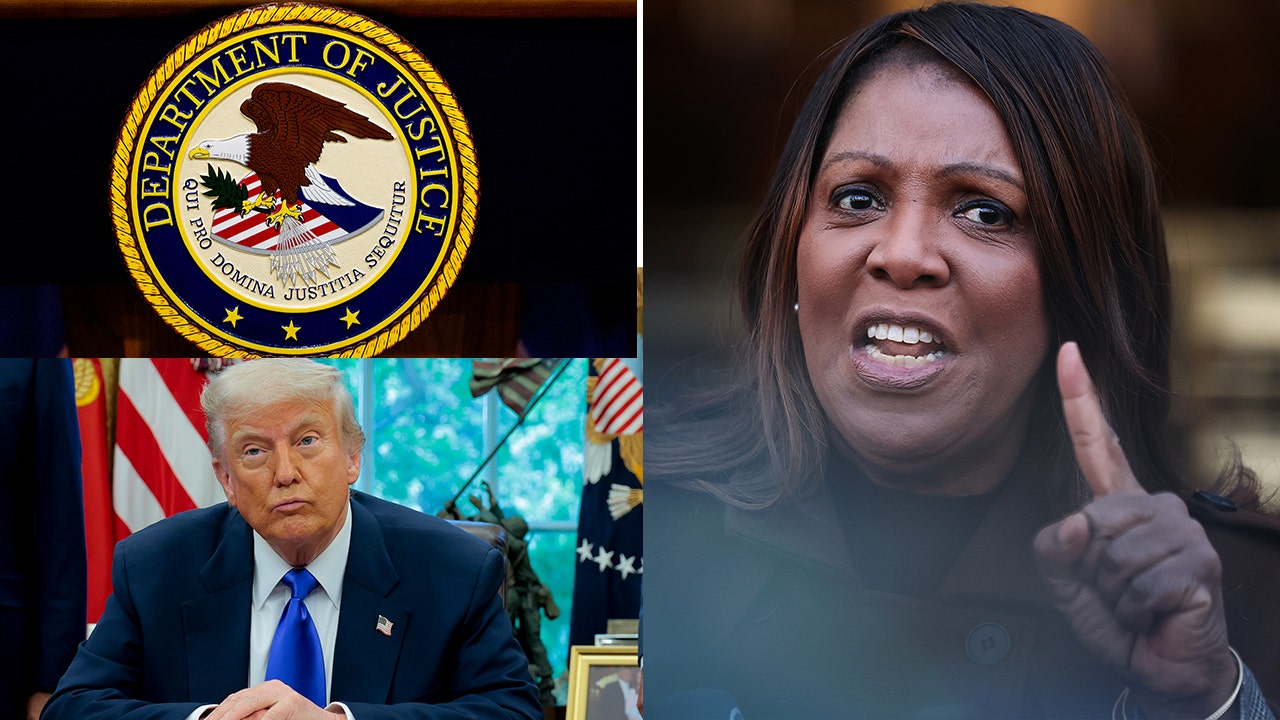
 Politics1 week ago
Politics1 week agoDepartment of Justice opens criminal investigation into NY AG Letitia James
-
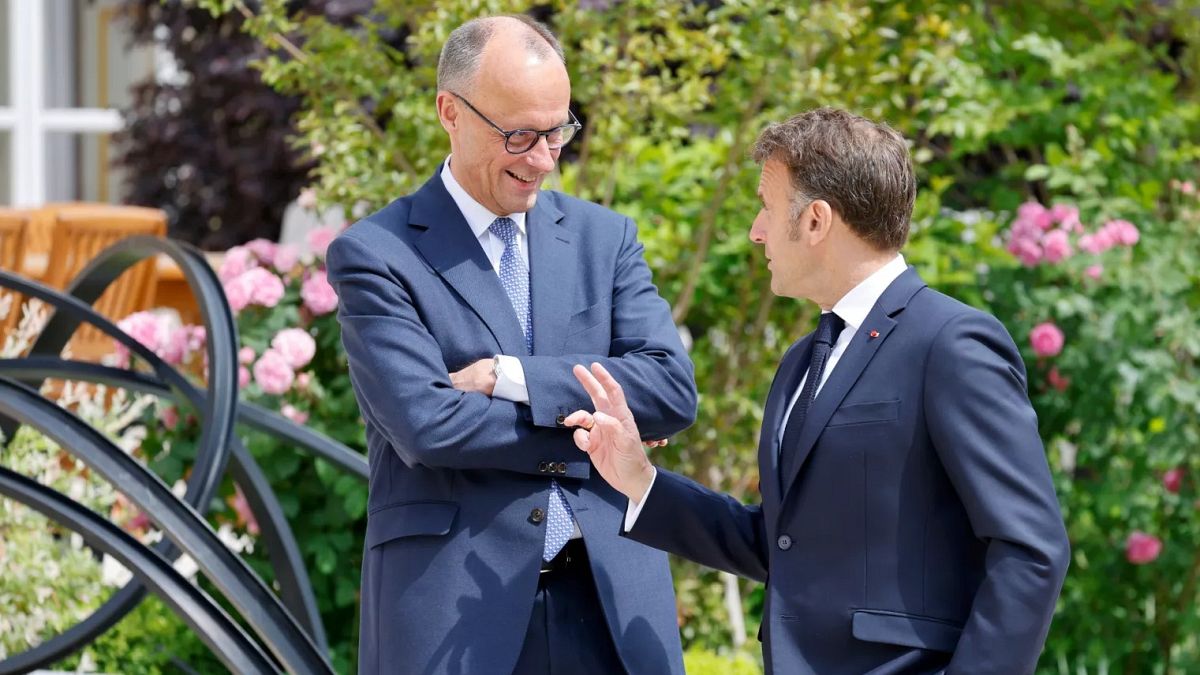
 World1 week ago
World1 week agoNew German chancellor aims for stronger EU ties with France and Poland
-

 News1 week ago
News1 week agoJudge Orders Release of Rumeysa Ozturk, Tufts Student Detained by ICE
